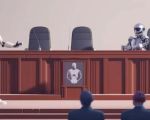- 1-Understanding-Rioting-and-Inciting-Violence
- 2-Legal-Definitions-and-Differences
- 3-Real-World-Cases-and-Their-Impact
- 4-Legal-Consequences-and-Protections
- 5-How-ESPLawyers-Can-Assist
1. Understanding Rioting and Inciting Violence
Rioting and inciting violence are serious offenses that pose significant risks to public safety and social order. Rioting generally refers to a group of individuals engaging in violent and tumultuous behavior, often causing damage to property or threatening the safety of others. Meanwhile, inciting violence involves encouraging or provoking others to commit violent acts, either through speech, writing, or other forms of communication.
Understanding these terms and their legal boundaries is crucial for both individuals and organizations, especially in today’s climate where social unrest and protests can quickly escalate.
1.1 The Context of Public Order
Riots typically erupt in public spaces where emotions run high, and tensions can escalate rapidly. Incitement to violence may occur before, during, or after such events and can serve as a catalyst for disorder. Recognizing the signs and consequences of such behavior is important to maintain peace and lawful conduct.
2. Legal Definitions and Differences
Legally, rioting is often defined as an unlawful assembly of multiple people engaging in violent acts that threaten public safety. Charges may vary based on jurisdiction but typically include penalties for violence, destruction of property, and obstruction of law enforcement.
Inciting violence is distinct in that it targets the instigators who intentionally provoke others to commit violent crimes. This can include speeches, social media posts, or any communication that explicitly or implicitly encourages violent acts.
2.1 Balancing Free Speech and Public Safety
While freedom of expression is protected under many legal systems, it does not extend to speech that incites imminent violence. Courts carefully assess context, intent, and likelihood of resulting violence when determining culpability.
3. Real-World Cases and Their Impact
Recent history offers numerous examples where rioting and inciting violence have led to widespread consequences. For instance, the 2020 civil unrest following protests saw multiple arrests and legal actions related to rioting charges. Similarly, individuals found guilty of inciting violence through online platforms have faced severe penalties, emphasizing the seriousness with which authorities treat these offenses.
These cases highlight the delicate balance between protecting civil rights and ensuring public order, illustrating how law enforcement and courts respond to such challenges.
3.1 Lessons Learned from Notable Incidents
The importance of responsible speech and peaceful protest is underscored by these events, reminding society of the impact words and actions can have in volatile situations.
4. Legal Consequences and Protections
Individuals convicted of rioting or inciting violence may face fines, imprisonment, and a permanent criminal record, affecting future opportunities and rights. However, legal protections exist for those wrongfully accused or exercising their rights within lawful limits.
Understanding these legal boundaries is vital, and consulting experienced legal counsel can help navigate complex situations where accusations arise.
4.1 Defending Your Rights
Legal defenses may include demonstrating lack of intent, absence from the scene, or protection under free speech laws. Each case requires careful evaluation of facts and evidence.
5. How ESPLawyers Can Assist
ESPLawyers specializes in defending clients facing charges related to rioting and inciting violence, offering expert legal advice tailored to each situation. Our team understands the nuances of these serious allegations and works diligently to protect your rights and achieve the best possible outcomes.
Whether you are seeking defense against charges or need guidance on avoiding legal pitfalls, ESPLawyers provides trusted, professional support to help you navigate the complexities of criminal law.








